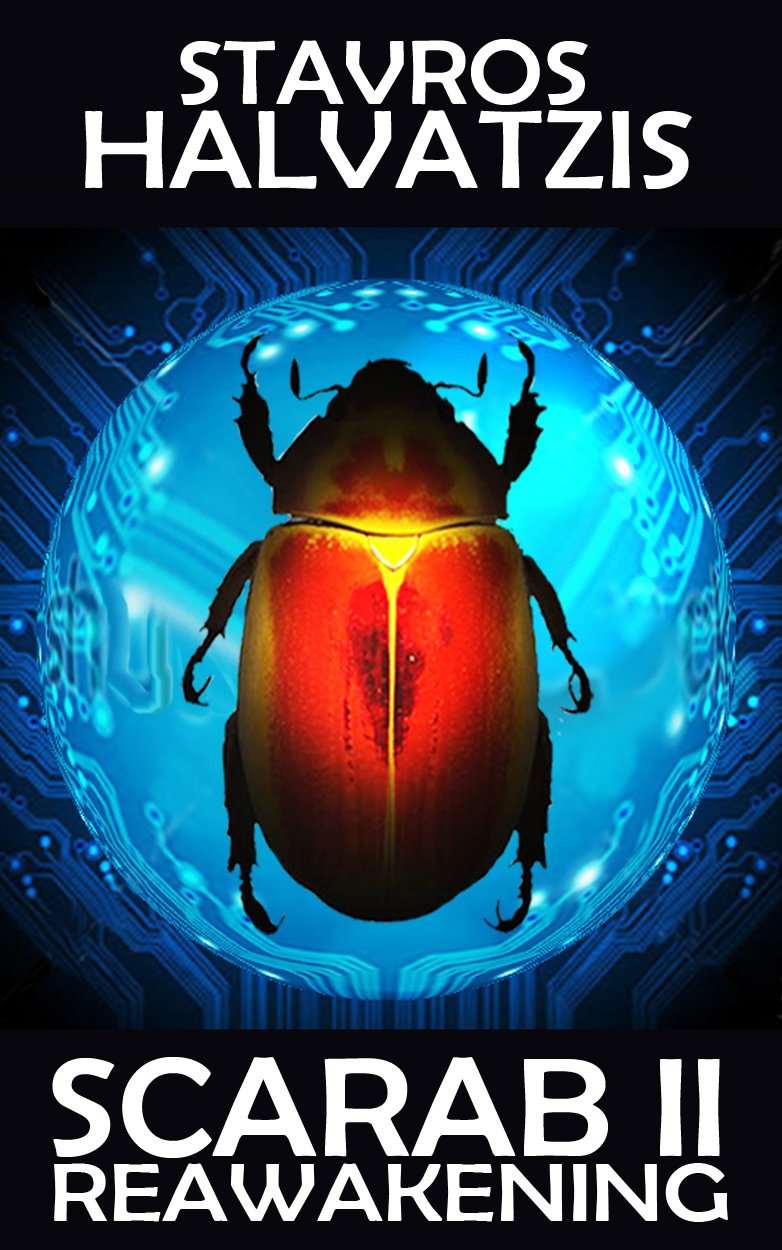The Future of Writing, reposted from @shalvatzis
By tweeting this syndicated post, you can earn promotional tweets from me as part of the Amazon Tweet Exchange.
Details here.
Details here.
 |
| Cover links to Amazon.com |
Additionally, the virtual side of stores such as Amazon and Barnes and Noble have provided a shopfront where authors can sell their work directly to the public and let it decide on its merit.
No longer need we plaster our walls with rejection slips from reluctant publishers, nor struggle to find reputable agents willing to take us on. Had that been my only option, I’d probably have fallen by the wayside, never having had the stomach to pursue that route in the first place. My first novel, Scarab, completed some 14 years ago, shelved and quietly forgotten about, might never have reached the No. 1 spot in the science fiction/hard-tech category on amazon.com and amazon.co.uk, nor would its follow up, Scarab II: Reawakening, have seen the light of day.
Luckily, I entered the market at a time when Amazon had already provided an alternative to the traditional publishing route through their kindle reader. For me it was a no-brainer. The reading public is, after all, our ultimate judge: It is the public we have to please if we are to succeed as authors—in an economic sense, at least. Of course, now that one’s work rides the best seller lists, traditional publishers no longer seem as reluctant.
Another factor fueling the writing resurgence is the number of new authors the changed landscape had allowed to emerge. People who would never considered trying their hand at writing are now doing so. Although an exponential increase in the democracy of writing has allowed the birth of material that seems below par, it has also allowed amazing new talent to be discovered. Hugh Howey, whose series, Wool has put him on the map, has admitted in a recent interview, that the traditional route would never had garnered him the success his indie status has.
Last, but not least, as indie writing grows into a giant industry, a number of services are springing up to support it. The number of how-to-write and market-yourself books, websites, and story doctors is growing by the day. Editors married to traditional publishing houses are realising that their services have coin with indie writers too—perhaps even more so. Inevitably, this will impact the quality of indie writing, driving it ever upward. Not only will this benefit the reading public, it will also affect the quality of movies that are increasingly drawing from this pool of new talent.
So, my fellow indie writers, put on your shades, for, whichever way we look, the future of writing seems bright indeed.
Summary
The positive outlook for reading and writing seems set to continue, supported by a growing number of hardware innovations and trends.

